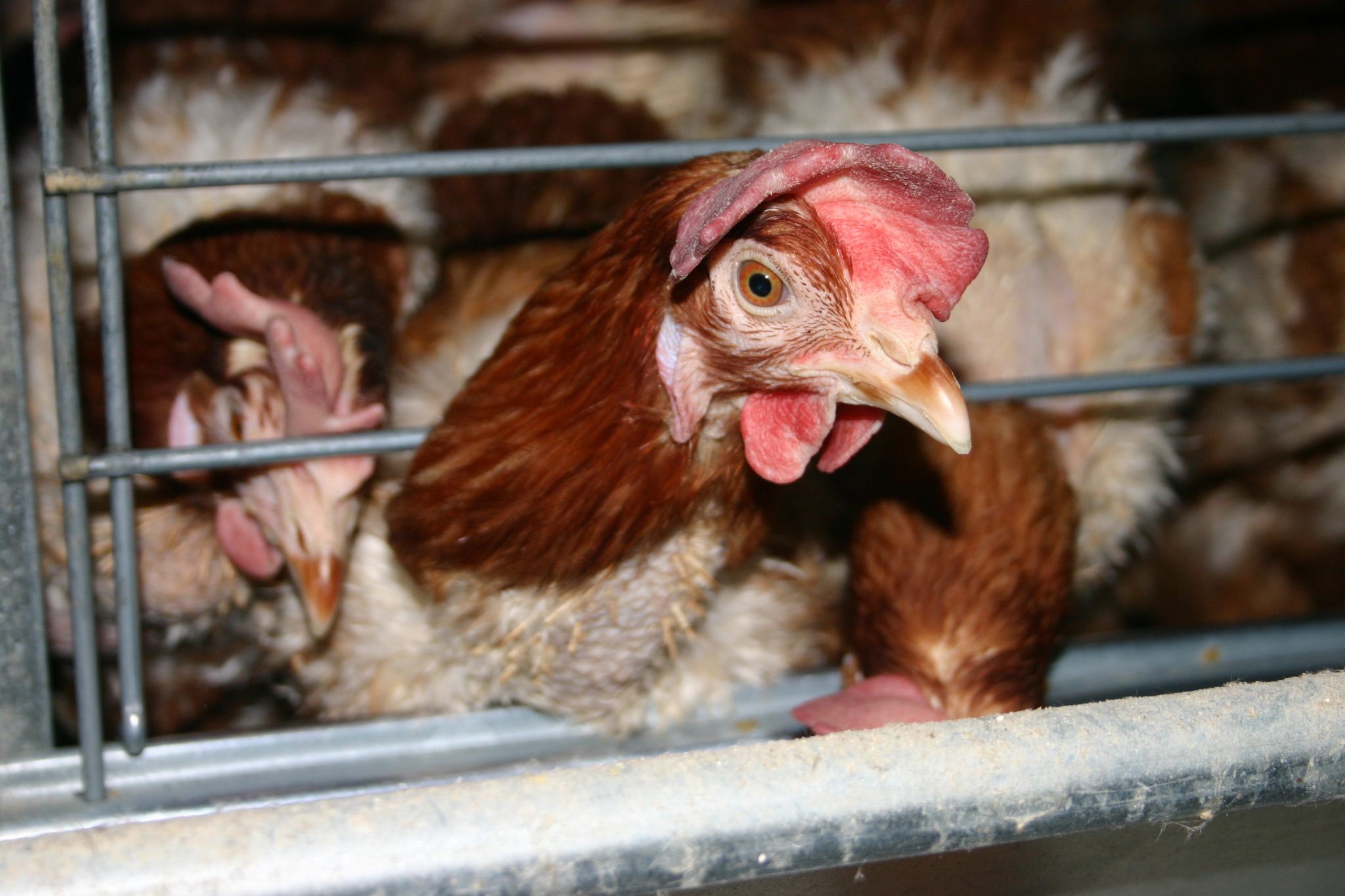A hen kept in a battery cage spends her entire life in a small overcrowded cage, inside a large, windowless shed

The environmentally-controlled shed contains many rows of cages, which may be stacked one on top of the other, several cages high. Each battery cage houses between three and eight hens, and as many as 45,000 hens may be kept in one shed.
A hen kept in a battery cage is given less than the size of an A4 piece of paper (only 550 square centimetres of space) to live out her life. Limited space and the barren cages means these hens cannot perform normal behaviour like perching, scratching, nesting. She won’t even be able to stretch her wings.
In highly automated sheds, conveyor belts carry food, waste and eggs along the rows of cages. Feeding and the hens’ living conditions are manipulated for maximum egg production. The sheds are noisy and may smell strongly of the hens’ waste and ammonia. The lighting in the sheds is kept dim to minimise aggressive behaviour among frustrated hens.
In December 2012, the Government released a new welfare code for hens which outlawed battery cages because they prevent hens from expressing normal patterns of behaviour – a requirement under the Animal Welfare Act 1999. From 2023 onwards, keeping hens in battery cages will be illegal in Aotearoa. Colony cages, however, remain in use despite the fact that they too breach New Zealand’s Animal Welfare Act 1999. Currently over 1.2 million hens are trapped in cruel colony cages across the country.
As a charity, SAFE is reliant on the support of caring people like you to carry out our valuable work. Every gift goes towards providing education, undertaking research and campaigning for the benefit of all animals. SAFE is a registered charity in New Zealand (CC 40428). Contributions of $5 or more are tax-deductible.